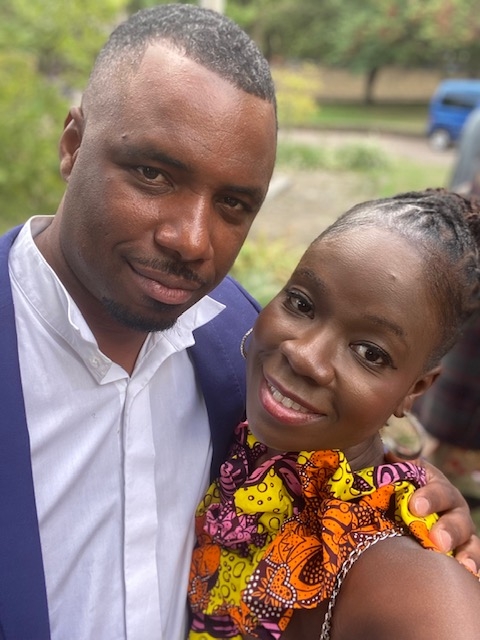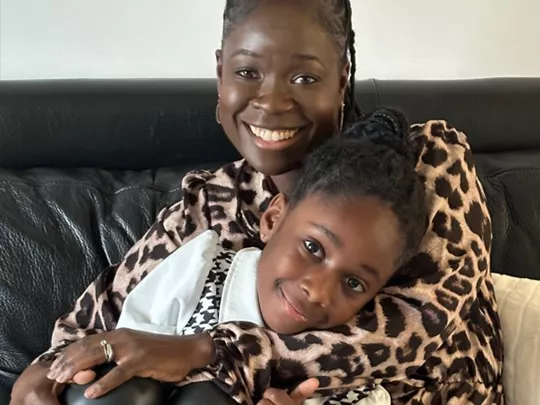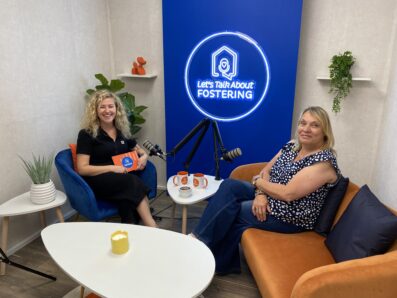Meet Claudia
Hello, my name is Claudia. I’m a proud Black British woman with Ghanaian heritage, and I’m married to a wonderful Caribbean man Denzel. My professional journey began in private equity in Mayfair, but I found myself seeking a deeper sense of fulfilment. This led me to teaching at Aylesbury HMP Prison, and eventually, after much reflection, I discovered my true passion in fostering. I have been a foster parent for over 10 years, embracing various types of placements. For the last four years, I have focused on parent and child placements, which I find profoundly rewarding.
Being a foster parent and why I decided to foster
Having fostered for over a decade, my journey has been deeply personal. From an early age, I felt a strong pull towards fostering, partly influenced by my own experiences as a child who didn’t initially live with my parents. This shaped many of my formative years and instilled in me a desire to make a difference in the lives of others. Many people suggested fostering when I was older, but I firmly believed that integrating a child into our lives could begin now, not later.
What does Black History Month mean to me and why is it important?
Black History Month holds significant meaning for me. It is a time to honour the rich history, culture, and contributions of Black individuals and communities. This month serves as both a celebration and a reminder of the struggles faced, as well as the resilience demonstrated throughout history. It allows us to reflect on the lessons learned and the progress made while reinforcing the importance of continued advocacy for equality and justice. It is a moment to empower ourselves and inspire younger generations to embrace their identity and history.

Working and cultural sensitivity
Cultural sensitivity means recognising and respecting the diverse backgrounds and experiences of individuals, especially looked after children. It is crucial because it helps to foster an environment of understanding and acceptance, allowing children to feel valued and seen. For many looked after young children, their cultural identity plays a vital role in shaping who they are. By prioritising cultural sensitivity, we can promote inclusivity and provide tailored support that acknowledges their unique heritage, ultimately fostering their self-esteem and sense of belonging.
Stand firm in power and pride
The theme ‘stand firm in power and pride’ resonates deeply with me. It embodies the strength and resilience of our heritage and the importance of celebrating our achievements and identity. Standing firm means advocating for ourselves and our communities, taking pride in our roots, and inspiring others to do the same. It is about embracing who we are and encouraging the next generation to carry that pride with them, ensuring they understand their worth and potential.

Favourite part of your own culture/heritage?
One of my favourite aspects of my culture is the belief that it truly takes a village to raise a child. This interconnectedness fosters a sense of community and support that is invaluable. We rely on each other, standing together through challenges and triumphs, ensuring that every child has the guidance, love, and resources they need to thrive. This collective approach to nurturing children is something I cherish and strive to embody in my own life as a foster parent.
Advice for foster parents caring for Black children who might be a different race/nationality to them?
For foster parents caring for Black children from different races or nationalities, my advice is to embrace diversity and approach your role with an open heart and mind. Take the time to understand the child’s culture, background, and experiences, and actively involve them in discussions about their identity. Create an environment that promotes pride in their heritage while celebrating the uniqueness of your family dynamic. Building trust, being sensitive to their feelings, and encouraging open conversations will help them navigate their identity and find strength in their heritage.
Remember, love and support are universal, and fostering a child’s self-worth will empower them to thrive.





